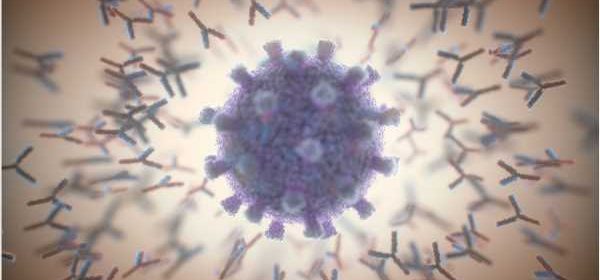Could horse-derived antibodies promote immunity against SARS-CoV-2 infection?

Researchers based in India have demonstrated that horses inoculated with an inactivated dosage of severe acute respiratory syndrome coronavirus 2 (SARS-CoV-2) are able to produce large amounts of strong antibodies that can neutralize multiple variants
A pre-print version of the research paper is available to read in full on the bioRxiv*server.
No time for horsing around
The ongoing coronavirus disease 2019 (COVID-19) pandemic has given rise to a number of vaccines now in circulation globally. The rate of deployment of these vaccines, however, is severely lagging behind the rate of the virus’s spread and mutation.
The team of researchers has thus been investigating an alternative solution: antibodies from large mammals.
Large animals, like horses, are able to produce antibodies in high quantities that can then be reapplied and used in human subjects, rather than having to synthesize such proteins from scratch.
Harshan and collaborators inoculated several horses with inactivated Indian SARS-CoV-2 cultures mixed with Freund’s Complete Adjuvant – a solution that promotes cell-mediated immunity. Plasma samples were taken from the immunized horses and then tested for antibody response. The researchers found that the extracted antibodies were effective at neutralizing both the ancestral and deviant strains of COVID-19. This news is especially promising as the antibodies can be sourced from the horses after less than two months from initial inoculation with the inactivated virus and can be sourced in large quantities.
Additionally, the antibodies can penetrate deeper into organs and tissues due to their smaller size and lesser cellular affinity, only adding to their already beneficial properties.
This research comes out after a series of trials already conducted on the applicability of horse antibodies to SARS-CoV-2. It further highlights the easy and inexpensive accessibility of these types of immunization programs.
Alternative methods
Antibody immunity provided by large animals is just one of many new arising methods for tackling the COVID-19 pandemic. The virus is still spreading at a rate faster than vaccines can be dispensed, and scientists currently estimate it may take several years to be able to get the virus fully under control.
Worldwide, coronavirus cases now breach over 119 million, and as such, the roll-out of effective alternate therapeutics and prophylactics will likely become vital for global society to surmount the pandemic.
*Important Notice
bioRxiv publishes preliminary scientific reports that are not peer-reviewed and, therefore, should not be regarded as conclusive, guide clinical practice/health-related behavior, or treated as established information.
- Gupta D, et al. Development of Equine Immunoglobulin Fragment F(ab')2 with High Neutralizing Capability against SARS-CoV-2. bioRxiv, 2021. doi: https://doi.org/10.1101/2021.03.09.434030, https://www.biorxiv.org/content/10.1101/2021.03.09.434030v1
Posted in: Medical Science News | Medical Research News | Disease/Infection News | Healthcare News
Tags: Antibodies, Antibody, Cell, Coronavirus, Coronavirus Disease COVID-19, Horse, Immunization, Immunoglobulin, Mutation, Pandemic, Research, Respiratory, SARS, SARS-CoV-2, Severe Acute Respiratory, Severe Acute Respiratory Syndrome, Syndrome, Therapeutics, Virus

Written by
Michael Burgess
Michael graduated with a first-class degree in Zoology from the University of Hull, and later received a Masters degree in Palaeobiology from the University of Bristol.
Source: Read Full Article
-1.jpg)